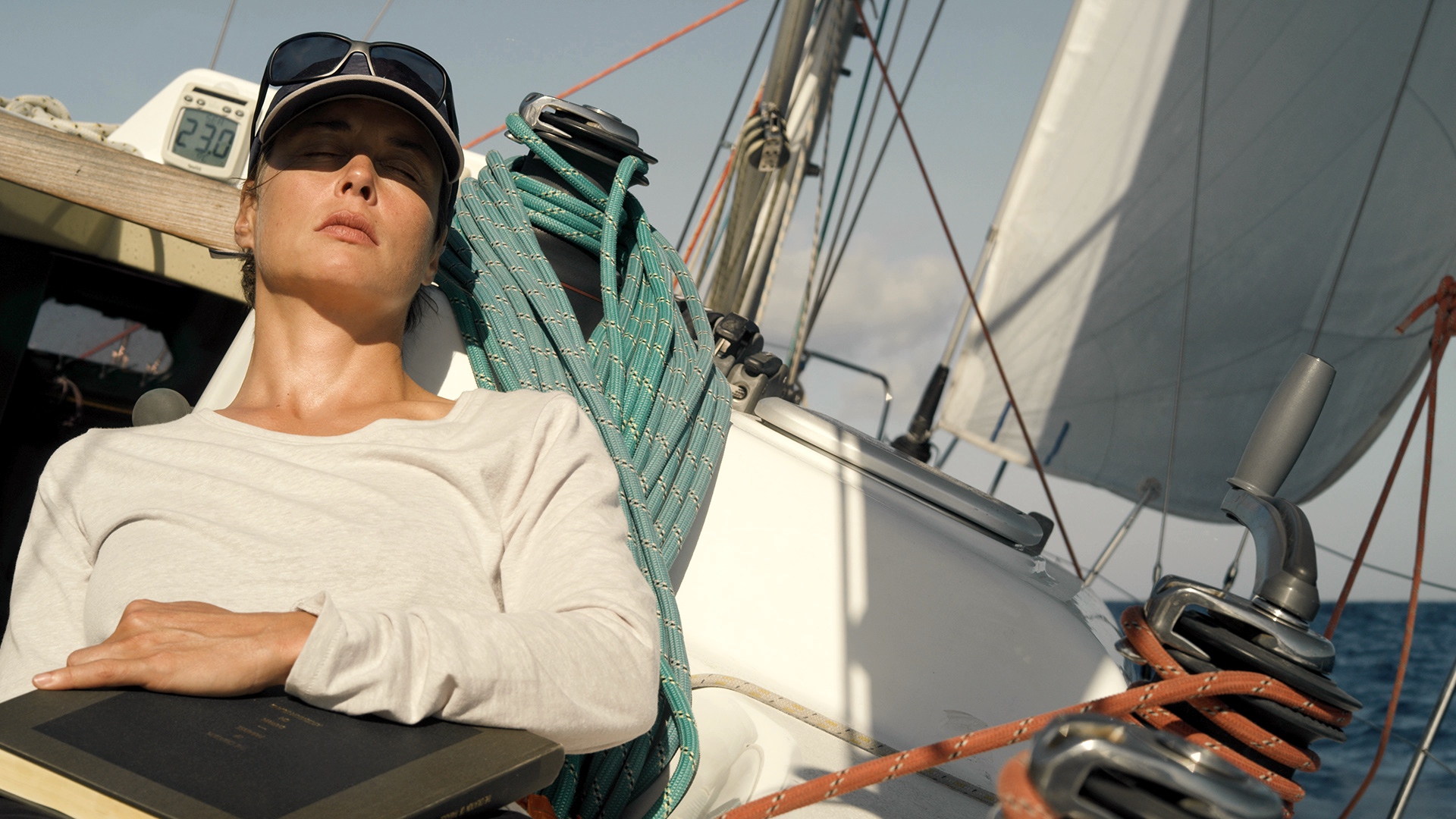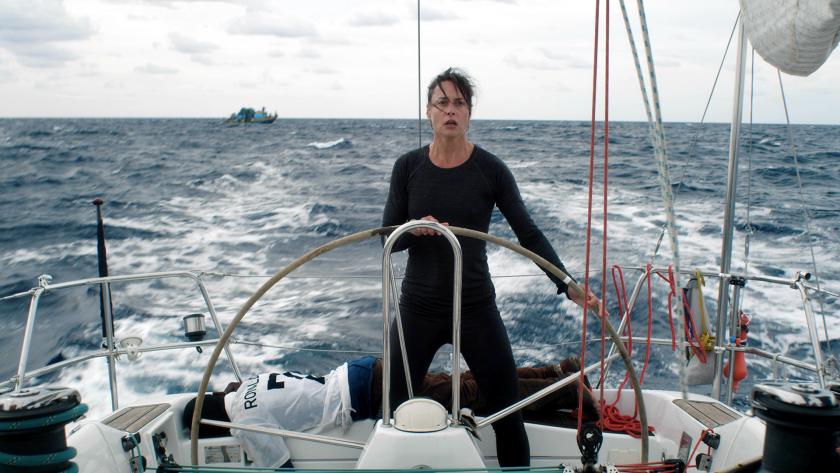The Mediterranean’s massacres of the refugee innocent come uncomfortably close to a lone female sailor in this stark parable of European helplessness and indifference.
When German doctor Rike (Susanne Wolff) casts off from Gibraltar, the ocean’s vastness seems a challenging backdrop for a testing voyage. For a while in Wolfgang Fischer’s austerely beautiful film, she is silent and peacefully alone, relishing her freedom. When a storm rolls in, and her ship repeatedly slips into the trench between waves with her at the helm, Robert Redford’s lonely stoicism as the sailor of a sinking ship in All Is Lost (2013) comes to mind. There is something more joyous in Rike’s struggle, the satisfaction of a strong, determined young woman fighting the elements. But when a sinking refugee ship appears on the horizon, and a young boy, Kingsley (Gedeon Oduor Weseka), swims to be dragged exhausted onto her deck, her splendid isolation is shattered. The robotic Coast Guard voices warning Rike not to intervene contrast with distant screams from the doomed ship. The cold shell which now insulates Western consciences from such fates freezes the authorities’ tone. Official hostility to “encouraging” refugees with help alienates them from their duty to intervene. The rigid inhumanity of everyone Rike reaches on her radio, sounding worse in their denatured, international English, is confirmed when they are finally seen in the flesh, with their decontamination suits and truncheons. Fischer appears over the top here, the schematic nature of his moral as well as formal compositions clear. But the callous response of a Europe feeling itself overwhelmed is horribly true.
The robotic Coast Guard voices warning Rike not to intervene contrast with distant screams from the doomed ship. The cold shell which now insulates Western consciences from such fates freezes the authorities’ tone. Official hostility to “encouraging” refugees with help alienates them from their duty to intervene. The rigid inhumanity of everyone Rike reaches on her radio, sounding worse in their denatured, international English, is confirmed when they are finally seen in the flesh, with their decontamination suits and truncheons. Fischer appears over the top here, the schematic nature of his moral as well as formal compositions clear. But the callous response of a Europe feeling itself overwhelmed is horribly true.
“White saviour” narratives are savagely undercut, though not abandoned. Rike embodies European fears, as she wrestles with her conscience in a boat much too small for those seeking it. In this impossible situation, Fischer implies, this good German must do something. The folk memory of shipboard Jews hoping for safe passage from the Nazis comes to mind; slaves drowning and thirstily dying in holds off the west African coast where she’s sailing, too. But Rike’s saviour role is also refused by first-time actor Weseka’s performance. He becomes dangerously angry at her refusal to help his sister and others, close enough to hear as they are left to die. He suggests both the overwhelming chaos which would consume Rike’s yacht if she tried to rescue the hundred neighbouring souls in their floating purgatory, and the affront to their shared humanity that she will not. Finally his eyes dull, as rage and hope die.
But Rike’s saviour role is also refused by first-time actor Weseka’s performance. He becomes dangerously angry at her refusal to help his sister and others, close enough to hear as they are left to die. He suggests both the overwhelming chaos which would consume Rike’s yacht if she tried to rescue the hundred neighbouring souls in their floating purgatory, and the affront to their shared humanity that she will not. Finally his eyes dull, as rage and hope die.
Fischer is a former experimental filmmaker and documentarian who has come late to features (this is only his second, aged 49). In daringly filming at sea and largely restricting himself to ambient sounds, he adds tangible reality to his spare, cool depiction of a cruel nightmare, etched on the face of a good woman who finds she cannot do nearly enough. Fischer’s Rike is a charismatic yet earthily real, almost helpless heroine.
If the metaphors for current refugee policies are sometimes heavy-handed, this response’s angry despair is powerfully put.















Add comment